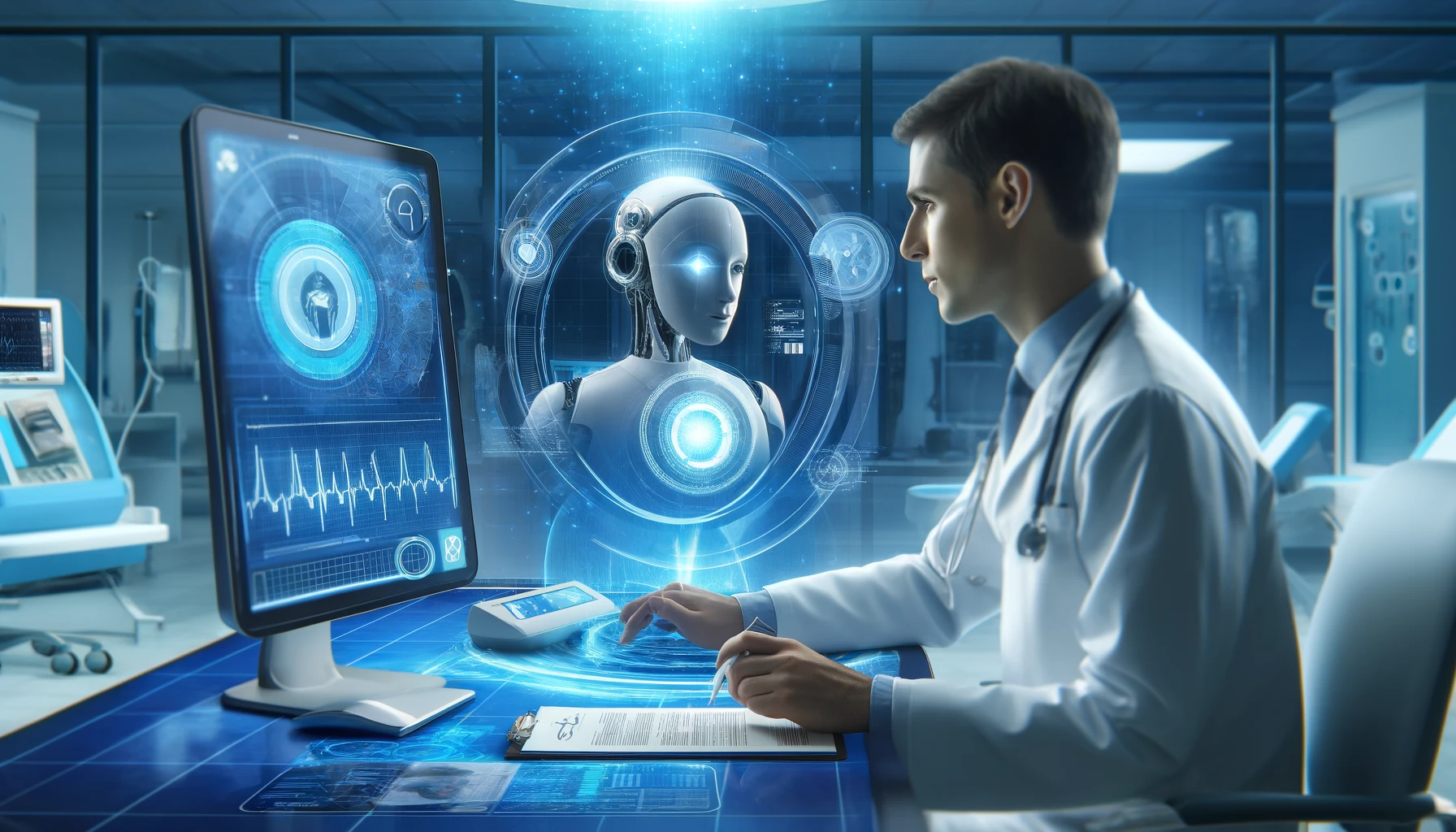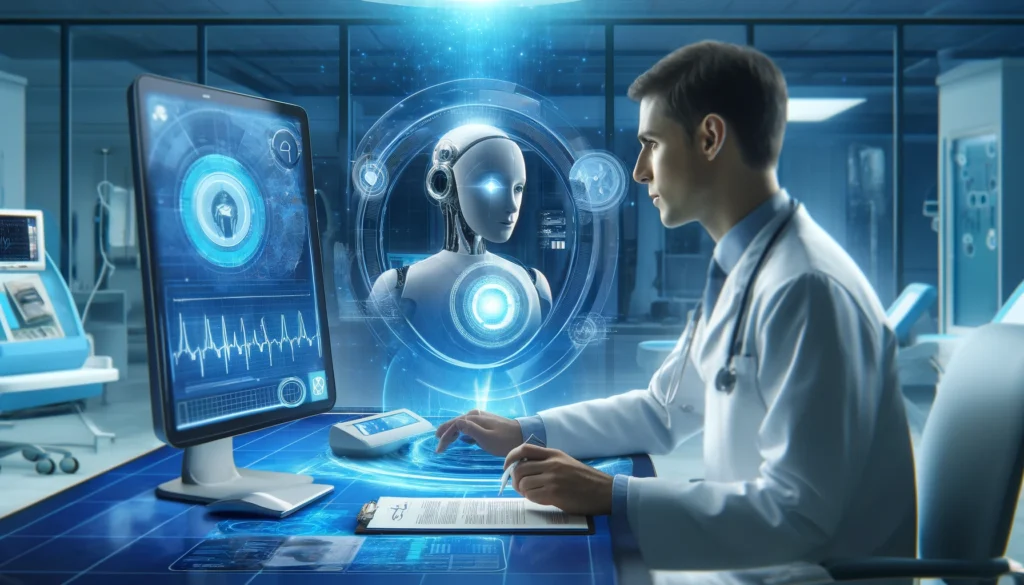Dragon Copilot: Revolutionizing Healthcare with AI
Introduction
You know that feeling when technology finally catches up to real-life problems? That’s exactly what’s happening in healthcare with Microsoft’s latest innovation—Dragon Copilot.
This AI-powered assistant, backed by Nuance Communications, is here to take over the heavy lifting in clinical documentation. Imagine an AI that listens, transcribes, and organizes medical notes in real time, cutting hours of paperwork for healthcare professionals. Sounds like a game-changer, right? Let’s break down how Dragon Copilot is about to reshape healthcare as we know it.
The Role of AI in Modern Healthcare
Artificial Intelligence (AI) has been transforming industries for years, but its role in healthcare is particularly groundbreaking. The combination of machine learning, natural language processing (NLP), and predictive analytics has enabled AI-powered solutions to assist in diagnostics, automate tasks, and personalize patient care.
In healthcare settings, AI helps:
- Reduce paperwork – Clinicians spend hours on documentation; AI speeds up this process.
- Improve decision-making – AI can analyze patient data and suggest optimal treatments.
- Enhance patient care – Less time on admin work means more face-to-face time with patients.
Dragon Copilot is a perfect example of how AI is bridging the gap between technology and patient-centered care.
Nuance Technology: The Backbone of Dragon Copilot
Microsoft’s Dragon Copilot is powered by Nuance Communications, a leader in speech recognition technology. Nuance, acquired by Microsoft in 2021, has been the driving force behind Dragon Medical One, a cloud-based speech-to-text solution tailored for healthcare professionals.
Key Features of Nuance Technology in Dragon Copilot:
✔️ Real-time voice recognition – Transcribes medical notes as clinicians speak.
✔️ Ambient Clinical Intelligence (ACI) – Captures doctor-patient conversations without disrupting consultations.
✔️ HIPAA-compliant security – Ensures data privacy in compliance with healthcare regulations.
With this advanced AI listening, understanding, and transcribing in the background, Dragon Copilot streamlines the documentation process like never before.
Automating Clinical Documentation
Medical documentation is essential but time-consuming. Traditionally, doctors spend 35-40% of their time on notes, reducing patient interaction.
How Dragon Copilot Automates Documentation:
📌 Real-time dictation – Clinicians can dictate notes naturally, and AI transcribes them instantly.
📌 Structured medical reports – Automatically formats notes based on medical standards.
📌 Seamless EHR integration – Directly updates Electronic Health Records (EHRs) without manual entry.
This means fewer errors, less fatigue, and more focus on patient care.
Reducing Physician Burnout
One of the biggest pain points for healthcare providers today is burnout. Between back-to-back patient visits and the never-ending pile of documentation, stress levels are skyrocketing.
Dragon Copilot acts as a digital scribe, offloading tedious admin tasks and allowing doctors to:
🩺 Spend more time with patients instead of computers.
🖊️ Avoid repetitive manual entries.
🧠 Improve work-life balance by reducing overtime documentation.
By handling routine work, AI gives healthcare workers the breathing room they desperately need.
Enhancing Patient Care with AI
When healthcare professionals aren’t buried in paperwork, they can fully engage with patients. AI-powered tools like Dragon Copilot enhance patient interactions by:
✔️ Reducing note-taking distractions – No more looking at screens while talking to patients.
✔️ Improving diagnosis accuracy – AI identifies patterns in patient history for better insights.
✔️ Ensuring comprehensive records – AI captures every detail, minimizing miscommunication.
This results in more personalized and efficient patient care.
Security and Compliance in Healthcare AI
Data security in healthcare is non-negotiable. With AI handling sensitive patient information, Microsoft ensures Dragon Copilot is compliant with HIPAA and global data protection standards.
Key security measures include:
🔐 End-to-end encryption – Protects patient records from cyber threats.
🛡️ Role-based access control – Ensures only authorized personnel can access data.
🧑⚕️ AI bias reduction – Machine learning models are trained to eliminate bias and improve fairness.
With robust security in place, Dragon Copilot allows healthcare professionals to use AI with confidence.
Comparing Dragon Copilot to Other AI Assistants
Several AI assistants exist in the healthcare space, but Dragon Copilot sets itself apart with:
🗣️ Superior voice recognition – Optimized for medical terminology.
💾 Seamless EHR integration – Directly updates patient records.
🎙️ Ambient listening technology – Works passively in the background.
Unlike general AI assistants like Google Assistant or Siri, Dragon Copilot is purpose-built for healthcare, making it a more powerful and efficient tool for clinicians.
Real-World Applications and Success Stories
Hospitals and clinics using AI-powered solutions have reported:
📉 50% reduction in documentation time.
📈 20-30% improvement in patient care efficiency.
🩺 Higher job satisfaction among healthcare workers.
For example, a leading US hospital tested Dragon Copilot and saw dramatic improvements in workflow, with doctors able to see more patients per day while spending less time on documentation.
Future Prospects of AI Assistants in Healthcare
Dragon Copilot is just the beginning. The future of AI in healthcare includes:
🤖 Predictive analytics – AI will anticipate patient conditions before symptoms appear.
💊 AI-powered drug discovery – Accelerating the development of new treatments.
🧬 Personalized medicine – Tailoring treatments based on genetic profiles.
As AI continues to evolve, healthcare will become smarter, faster, and more efficient.
Conclusion
The introduction of Dragon Copilot is a turning point in healthcare technology. By automating documentation, reducing burnout, and improving patient care, Microsoft’s AI assistant is reshaping clinical workflows.
For healthcare professionals, this means less time on paperwork and more time with patients. For patients, this translates to better, more attentive care.
👉 What do you think about AI in healthcare? Drop a comment below! Let’s discuss the future of AI-powered medicine.




